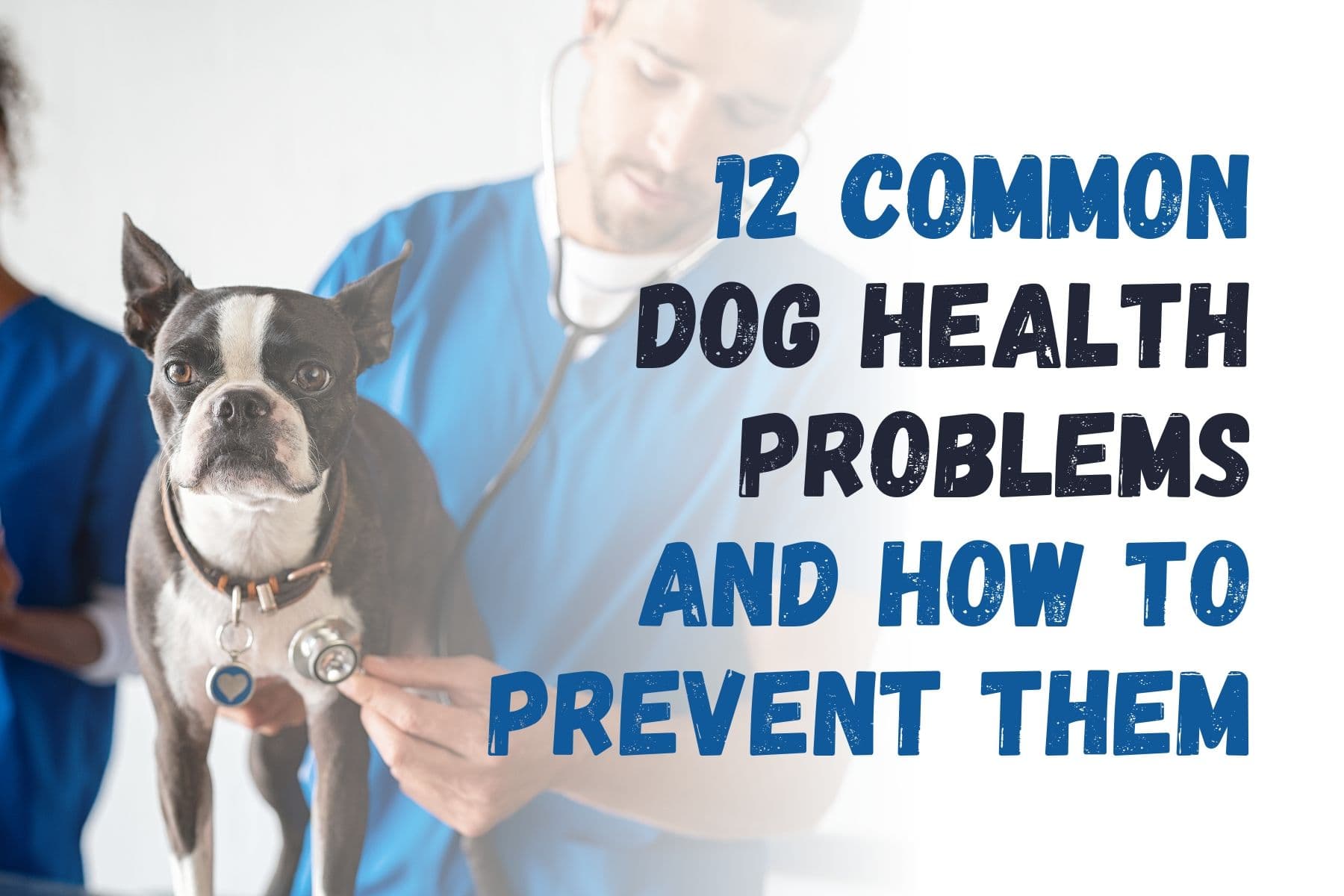How to Prevent the 12 Most Common Health Issues in Dogs

When you bring a dog into your home, you're not just getting a pet — you’re adding a new family member. And just like any loved one, you want them to live a long, happy, and healthy life. Over the years, we’ve seen our fair share of health hiccups with dogs at home and through fostering. So here’s a down-to-earth guide to the most common dog health issues, how to spot them early, and what you can do to prevent them.
1. Fleas & Ticks: Tiny Pests, Big Problems
These little parasites love to hitch a ride on your pup, especially after outdoor adventures. Fleas can trigger itching, allergies, and even tapeworms, while ticks can carry serious diseases like Lyme.
What we do:
- Check our dogs after walks, especially in grassy or wooded areas.
- Use monthly flea and tick preventatives (topicals or chewables recommended by our vet).
- Keep bedding and floors clean — vacuuming helps reduce eggs and larvae.
2. Heartworm: A Silent Threat
Spread by mosquitoes, heartworm can be deadly if not caught in time. The worms grow inside the heart and lungs, causing coughing, fatigue, and even heart failure.
Prevention is everything:
- Keep up with monthly heartworm meds — they’re a must, even in colder months.
- Annual testing is part of our regular vet visits.
3. Parvovirus: Dangerous for Puppies
Parvo spreads through infected feces and can be fatal, especially for unvaccinated pups. Symptoms include vomiting, diarrhea, and extreme lethargy.
How we protect our pups:
- Vaccinate early and follow the vet’s schedule.
- Keep puppies away from unknown dogs and communal areas (like dog parks) until fully vaccinated.
- Disinfect surfaces if there’s any risk of exposure.
4. Lyme Disease: Watch for Ticks
This tick-borne illness causes joint pain, fever, and fatigue. Left untreated, it can damage kidneys and affect the nervous system.
Our tick routine includes:
- Daily tick checks after hikes or yard play.
- Tick collars or topical treatments.
- Asking our vet about the Lyme vaccine, especially if we’re in high-risk areas.
5. Ear Infections: Common, but Preventable
Especially in floppy-eared breeds or dogs who love to swim. Infections can be bacterial or fungal and cause head shaking, odor, or redness.
Our tips:
- Clean ears weekly with a vet-approved solution.
- Dry ears thoroughly after baths or swimming.
- Get any signs of discomfort checked early — they can spiral quickly.
6. GI Upset: Tummy Troubles
Vomiting, diarrhea, or sudden appetite loss can signal gastrointestinal issues. Sometimes it’s just something they ate, but it could also be parasites or a chronic issue.
What helps:
- Stick to a consistent, high-quality diet.
- Avoid table scraps or fatty treats.
- Monitor any GI symptoms — if they last more than a day or worsen, call your vet.
7. Allergies: Food or Environment
Itchy skin, ear infections, or constant licking? Allergies might be the culprit — from pollen to chicken to dust mites.
What we’ve learned:
- Rule out food triggers with an elimination diet (with vet help).
- Clean floors and bedding often.
- Keep up flea control — flea saliva is a top allergen!
8. Dental Disease: Not Just Bad Breath
Dental problems start small — a little plaque here, some tartar there — but can lead to painful infections and even organ problems.
What works for us:
- Daily brushing (or at least a few times a week — we’re being honest here).
- Dental chews that actually help (check for VOHC-approved ones).
- Annual professional cleanings if needed.
9. Skin Infections: From Folds to Feet
Dogs can develop skin infections from bacteria, yeast, or parasites. Hot spots, redness, or hair loss are red flags.
Prevent it by:
- Keeping them clean and dry, especially in skin folds (like bulldogs or pugs).
- Watching for excessive licking or scratching.
- Seeing the vet for any persistent skin issues — topical meds usually clear it up quickly.
10. Obesity: Easy to Miss, Hard on Their Health
An overweight dog is at risk for joint issues, heart problems, and diabetes. And extra pounds creep up fast!
How we manage weight:
- Use a measuring cup for meals — no guessing.
- Swap high-calorie treats for veggies like carrots or green beans.
- Regular walks and playtime — it’s good for us too!
11. Arthritis: Especially in Seniors
Stiffness, limping, or reluctance to jump can signal arthritis. It’s common in older dogs but can start earlier in large breeds.
What helps our senior pups:
- Omega-3 supplements with vet approval.
- Soft, orthopedic bedding.
- Gentle, consistent exercise to keep joints moving.
- Pain meds or joint support if needed — always talk to your vet.
12. Vaccinations: A Lifesaver
Vaccines protect against deadly diseases like rabies, distemper, and parvo. They're not just for puppies — adult dogs need boosters, too.
We stay on schedule by:
- Keeping a vaccination log.
- Asking our vet about any optional vaccines based on our area or travel plans (like Lyme or kennel cough).
Final Thoughts
Being proactive about your dog’s health doesn’t have to be overwhelming. A little prevention goes a long way — regular checkups, a good diet, plenty of movement, and just paying attention to changes in behavior or appearance.
We’ve learned (sometimes the hard way) that acting early can save a lot of trouble later. So trust your instincts, work closely with your vet, and enjoy those tail wags and happy, healthy years together.
